Did you know that over 60% of Americans have experienced childhood trauma of some sort? Yes, trauma faced while growing up is more common than you might think.
So common that you may have experienced trauma of some sort too. Perhaps you’ve repressed the memory, forgotten it, or even processed it – but it is essential to know where you’re at so you can move on in adulthood.
You may be wondering, how exactly can you measure trauma? Well, that’s where the childhood trauma test comes in. Below, we share the essential guide to the ACE childhood trauma test and everything you can learn from it.
The ACE childhood trauma test for adults is a score summing up the extent of difficult childhood experiences. The ACE test questions for childhood trauma include a series of 10 questions about various incidents that occur during the earlier stages of life.
According to the test, the rougher your childhood, the higher you’ll score on the quiz. This, in turn, has implications for experiences well into adulthood. For example, this may manifest in symptoms that range from headaches and heart disease to depression and substance abuse.
The ACE early childhood trauma test measures ten types of childhood trauma experienced at a young age. The first five are related to personal circumstances, which could be verbal, sexual, and physical abuse or different kinds of neglect.
The other five questions relate to conditions within the family. Trauma can be caused by the separation of parents, family members who are imprisoned or diagnosed with a mental illness, or by parents who are alcoholics or victims of domestic abuse.
As you answer your questions, you get a point for every kind of trauma you face. As your score increases, so does your risk of various types of social, physical, emotional, and mental problems.
As we know, there is a direct link between higher ACE scores and the risk of various kinds of conditions and problems. Your ACE score should thus indicate the likelihood of risk, as well as alert you to the statistical possibility of these risks.
Let’s look at the variety of scores and what we can understand from them.
A score of zero indicates a very low likelihood of facing adverse health conditions in adulthood. Those with such a low score have a lower chance of taking up smoking, attempting suicide, experiencing depression, and participating in substance abuse.
However, other health conditions such as the likelihood of suffering from depression, financial problems, and obesity are high as with other ACE scores.
Individuals with a score of one to three have an intermediate risk for various associated health conditions. For example, their likelihood of using illicit drugs increases from 11.3-21.5%. The associations with alcoholism, depression, and suicidal tendencies also go up correspondingly.
Social, emotional, and cognitive impairment is familiar with such individuals, as is the possibility of disrupted neurodevelopment.
However, other health conditions such as the likelihood of suffering from depression, financial problems, and obesity are high as with other ACE scores.
Wellbeing can be significantly hampered for those with ACE scores of four and up. The possibility of disease, disability, and social problems also substantially increases, and early death is also a likelihood.
It is also important to note here that there are a lot of scientific gaps when it comes to such high ACE scores. However, the general consensus is that likelihood of becoming an alcoholic increases fourfold, while the possibility of suffering from chronic depression triples.
Individuals in this position will also see their chance of heart disease and stroke double, while the likelihood of severe financial issues and problems while working will triple.
With high ACE (adverse childhood experiences) scores, adults are likely to develop poor coping mechanisms in the face of stress. If you grew up with a family member who struggled with alcoholism or some form of substance abuse, you might have experienced the following scenarios:
In families where alcoholism is present, communication doesn’t take place very often due to secrets, which breed a lot of shame. Shut-down in communication leads to disconnection with family members, oneself, and the outside world. One of the most important skills in any successful relationship is communication, so when that skill is not developed throughout childhood and adolescence, it’s no wonder why the adult will experience a lack of success in relationships, personally or professionally.
Adjusting to the changing sails of life proves extremely difficult because, for many people, consistency and routine are a “safe place” in the midst of chaos and turmoil. Unpredictable events can rattle one’s emotional foundation, triggering one’s anxiety and plunging one into depression, especially when solutions seem unobtainable (i.e., no family support in time of need). As a result of clinging to routine and predictability, one’s personality may appear rigid and lack spontaneity.
Perfectionism and harsh self-criticism seem to go hand in hand. While perfectionism might work academically and professionally, it does not bode well for interpersonal skills. The harsh criticisms that a child grows up with continue to play like a broken record throughout adulthood. Without cognitive-behavioral intervention, it would be extremely hard for adults to be aware of what is going on subconsciously. Perfectionists are hard on themselves when they make a mistake; they feel like utter failures because they are not able to have compassion for themselves. These self-deprecating thoughts and voices could lead to a life of self-destruction through substance abuse and the destruction of important relationships with significant others because they are unable to have compassion for others when they fall short of expectations.
According to many experts, the ACE test doesn’t consider the full breadth of experiences in childhood. For example, it doesn’t include all the positive experiences one may have had, which help reduce the effects of trauma.
Having loving grandparents, a teacher who believes in you, or a soulmate from a young age helps protect children and build strength and resilience. Why? Research implies that close relationships are vital to navigating trauma and coming out without heavy psychological and mental burdens.
It also does not consider opportunities, skill-building curriculars, and community involvement that may have a positive effect on young minds.
The childhood trauma ACE test also misses several negative stressors outside the house. This could be discrimination, racism, poverty, and isolation. It also doesn’t take into account bullying at school, chaotic environments, and the effects of not having opportunities and services easily accessible.
Most children choose not to talk about their trauma. It is also challenging to persuade them to get the help and support they need. However, trauma symptoms are exhibited in various behaviors, particularly with children of a younger age. These carry over into adulthood too, as trauma can be a self-perpetuating cycle.
Following are the main symptoms of trauma to watch out for.
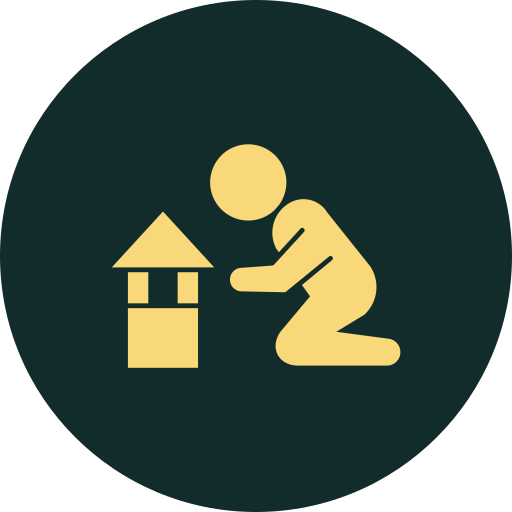
Children of this age may exhibit traumatic behavior through:
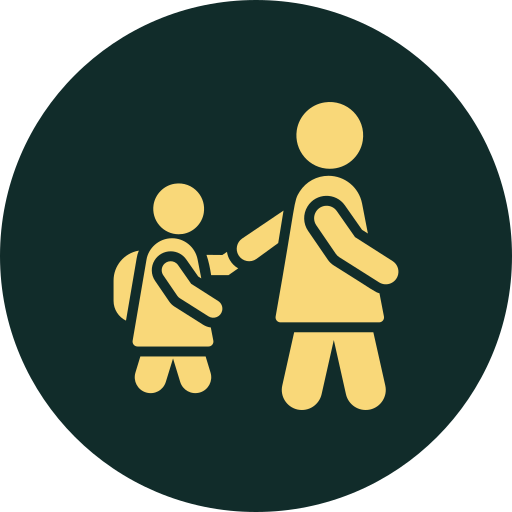
With elementary-aged children, symptoms may include:
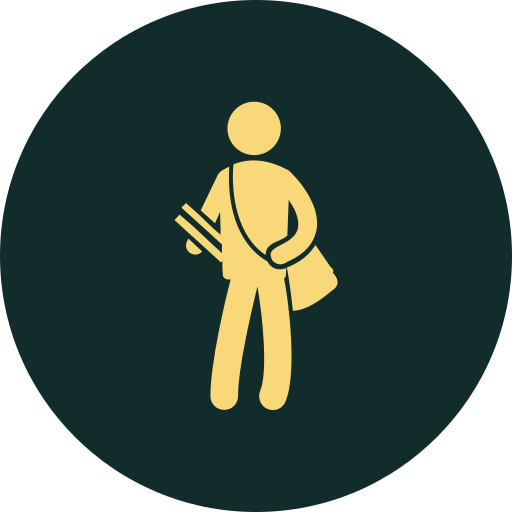
With children of this age, common trauma-induced symptoms are:
Many individuals taking the test tend to look at it as a binary. However, no research indicates that individuals who experience many ACEs will have adverse outcomes in adulthood. Nor does research suggest that children who experience no ACEs will have a stress-free and happy adult life.
Many people with highly high ACE scores achieve success in many facets of life and vice versa.
Instead, it is essential to understand that ACE scores are simply an indication of risk. A score is not tied to outcomes as much as related to the potential for hazards such as physical and behavioral health conditions.
Childhood trauma is surprisingly common. But what are the implications it has for adult life experiences? Abuse and neglect in childhood have significant impacts on your quality of life at all stages.
Let’s look at the impact of childhood trauma that can be felt in later life.
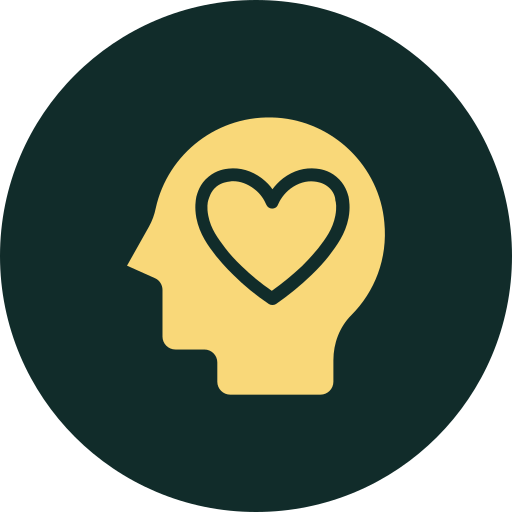
In later years, emotional well-being is one of the most affected facets of life. Those who have experienced abuse, neglect, and other traumas may share the following feelings:
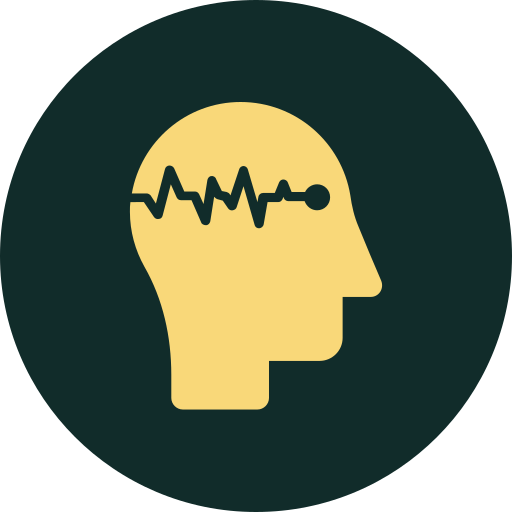
If you score high on an adverse childhood trauma test, you may be at higher risk for various behavioral health conditions as well. Depression and substance abuse are widespread among survivors.
In addition, many adults who experienced trauma struggle with PTSD, self-harm, anxiety, depression, and suicidal tendencies.
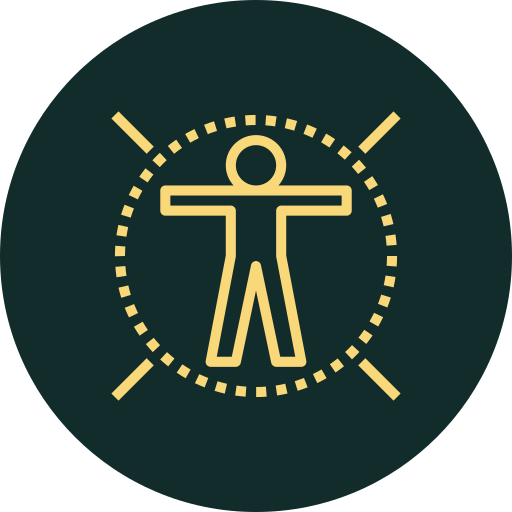
Young children exposed to difficulties often develop a ‘heightened stress response.’ This is the body’s reaction to challenges, resulting in the body shutting down to manage feelings and emotions. The stress response leads to difficulties in sleep, immune system functioning, heart health, and liver functioning. Thus, the risk of childhood illnesses transcends well into adulthood as well.
Feel like you’ve learned a lot about the ACE quiz? That’s good, because there is so much this simple test can teach us about life, childhood, and adulthood.
Below, let’s take a look at the main takeaways from the ACE test.
Most people suffer from childhood trauma of some sort, even if they don’t look or seem like it. Thus, the need for empathy in everyday interactions and events needs to be extremely high.
Not to mention, there must be widespread resources available for those who have undergone trauma. The conversation about childhood neglect and abuse is essential, as it may help individuals if they know that they are not alone in this experience.
In addition, there needs to be further education on childhood trauma and healthy coping skills to help overcome the experience.
Childhood experiences are formative and create the foundation for experiences well into old age. The ages between two to 14 are particularly critical in shaping our outlook, behavior, habits, and mental makeup.
Those who have suffered from childhood trauma will find the consequences of certain events affect them, even if they don’t realize it.
Many individuals tend to dismiss adverse experiences that have occurred many years prior. They may think they have overcome the trauma or that the events aren’t relevant to their existence today.
However, trauma can creep up on individuals well into late adulthood or earlier. The ACE childhood trauma test demonstrates effectively that trauma can increase the risk for severe mental and physical health conditions. Thus, it isn’t something to be dismissed or diminished.
Individuals who have undergone childhood trauma need to get the help and support needed to overcome their battles. When trauma manifests in substance abuse and anxiety specifically, it can have consequences on the victim’s families and close ones as well. This can then perpetuate childhood trauma for their offspring, which feeds the generational trauma cycle.
Dealing with trauma at a young age can be highly challenging. Many children do not receive the support and help they need. Other children may be reluctant to share events that may occur, such as parental neglect or sexual abuse.
The lack of having a support system through these difficult experiences can have a heavy toll on individuals. That’s why many trauma survivors turn to substances as a coping mechanism.
Drugs and alcohol offer a way to self-medicate and deal with pains from the past and present. Thus, there is a powerful correlation between trauma and various types of addiction.
In addition to dealing with substance abuse issues, many adults also deal with anxiety, depression, and PTSD. These symptoms are then exacerbated by substance abuse disorder. Overall, this can result in a lot of suffering and difficulty.
Childhood trauma is significantly linked with high risks for alcohol and drug abuse in adulthood, according to a research study. “ACE” is an acronym for “Adverse Childhood Experiences,” a concept that was developed by the CDC Kaiser Permanente Adverse Childhood Experiences Study originally conducted from 1995 to 1997. In this study, about 9,000 adults took a survey to determine their ACE score, and the findings revealed that children who were raised in alcoholic households were significantly more likely to have higher ACE scores.
Treating substance abuse addiction is not the only goal here at New Method Wellness. Digging beneath the surface and providing trauma-informed care for clients with moderate to high ACE (adverse childhood experiences) scores helps people get to the root of the problem so that clients don’t relapse into drug and alcohol abuse. Because many working adults are responsibly carrying on with their lives, they may not even be aware that they have a problem with alcohol abuse.
However, they might feel off-kilter about something internally, which drives them to consume alcohol heavily on a regular basis. Nonetheless, many individuals might be in denial of their problem because it’s not interfering with their work.
The childhood trauma test can be beneficial in learning more about yourself. You may see behaviors, reactions, habits, and patterns that are more easily explained as a result of your past.
For many individuals, childhood trauma results in depression and substance abuse habits. If you’ve been looking to overcome these challenges and move on to a happier you, our team at New Method Wellness is here to help.
Our beautiful Southern California treatment facility and qualified and compassionate staff offer individual attention and catered therapy so you can optimize healing and minimize relapse.
Deanna Crosby is a Licensed Marriage and Family Therapist (LMFT) with over 20 years of experience working with clients in recovery. Her expertise has catapulted her into the spotlight. Featured on several episodes of the Dr. Phil Show as a behavioral health expert, DeAnna is a routine contributor for NBC News, The Huffington Post, Elle Magazine, MSN, Fox News, Yahoo, Glamour, Today, and several other prominent media outlets.
After receiving her bachelor’s degree from the University of California in Irvine, Crosby did postgraduate work at Centaur University where she graduated at the top of her class with a CAADAC certification in Centaur’s chemical dependency program. Following her time at Centaur, Crosby received her Master of Counseling Psychology degree from Pacifica Graduate Institute, where she also attained a Doctoral Degree in Depth Psychology.
Accredited by:
New Method Wellness
We firmly believe that the internet should be available and accessible to anyone, and are committed to providing a website that is accessible to the widest possible audience, regardless of circumstance and ability.
To fulfill this, we aim to adhere as strictly as possible to the World Wide Web Consortium’s (W3C) Web Content Accessibility Guidelines 2.1 (WCAG 2.1) at the AA level. These guidelines explain how to make web content accessible to people with a wide array of disabilities. Complying with those guidelines helps us ensure that the website is accessible to all people: blind people, people with motor impairments, visual impairment, cognitive disabilities, and more.
This website utilizes various technologies that are meant to make it as accessible as possible at all times. We utilize an accessibility interface that allows persons with specific disabilities to adjust the website’s UI (user interface) and design it to their personal needs.
Additionally, the website utilizes an AI-based application that runs in the background and optimizes its accessibility level constantly. This application remediates the website’s HTML, adapts Its functionality and behavior for screen-readers used by the blind users, and for keyboard functions used by individuals with motor impairments.
If you’ve found a malfunction or have ideas for improvement, we’ll be happy to hear from you. You can reach out to the website’s operators by using the following email juanita@newmethodwellness.com
Our website implements the ARIA attributes (Accessible Rich Internet Applications) technique, alongside various different behavioral changes, to ensure blind users visiting with screen-readers are able to read, comprehend, and enjoy the website’s functions. As soon as a user with a screen-reader enters your site, they immediately receive a prompt to enter the Screen-Reader Profile so they can browse and operate your site effectively. Here’s how our website covers some of the most important screen-reader requirements, alongside console screenshots of code examples:
Screen-reader optimization: we run a background process that learns the website’s components from top to bottom, to ensure ongoing compliance even when updating the website. In this process, we provide screen-readers with meaningful data using the ARIA set of attributes. For example, we provide accurate form labels; descriptions for actionable icons (social media icons, search icons, cart icons, etc.); validation guidance for form inputs; element roles such as buttons, menus, modal dialogues (popups), and others. Additionally, the background process scans all of the website’s images and provides an accurate and meaningful image-object-recognition-based description as an ALT (alternate text) tag for images that are not described. It will also extract texts that are embedded within the image, using an OCR (optical character recognition) technology. To turn on screen-reader adjustments at any time, users need only to press the Alt+1 keyboard combination. Screen-reader users also get automatic announcements to turn the Screen-reader mode on as soon as they enter the website.
These adjustments are compatible with all popular screen readers, including JAWS and NVDA.
Keyboard navigation optimization: The background process also adjusts the website’s HTML, and adds various behaviors using JavaScript code to make the website operable by the keyboard. This includes the ability to navigate the website using the Tab and Shift+Tab keys, operate dropdowns with the arrow keys, close them with Esc, trigger buttons and links using the Enter key, navigate between radio and checkbox elements using the arrow keys, and fill them in with the Spacebar or Enter key.Additionally, keyboard users will find quick-navigation and content-skip menus, available at any time by clicking Alt+1, or as the first elements of the site while navigating with the keyboard. The background process also handles triggered popups by moving the keyboard focus towards them as soon as they appear, and not allow the focus drift outside of it.
Users can also use shortcuts such as “M” (menus), “H” (headings), “F” (forms), “B” (buttons), and “G” (graphics) to jump to specific elements.
We aim to support the widest array of browsers and assistive technologies as possible, so our users can choose the best fitting tools for them, with as few limitations as possible. Therefore, we have worked very hard to be able to support all major systems that comprise over 95% of the user market share including Google Chrome, Mozilla Firefox, Apple Safari, Opera and Microsoft Edge, JAWS and NVDA (screen readers), both for Windows and for MAC users.
Despite our very best efforts to allow anybody to adjust the website to their needs, there may still be pages or sections that are not fully accessible, are in the process of becoming accessible, or are lacking an adequate technological solution to make them accessible. Still, we are continually improving our accessibility, adding, updating and improving its options and features, and developing and adopting new technologies. All this is meant to reach the optimal level of accessibility, following technological advancements. For any assistance, please reach out to juanita@newmethodwellness.com